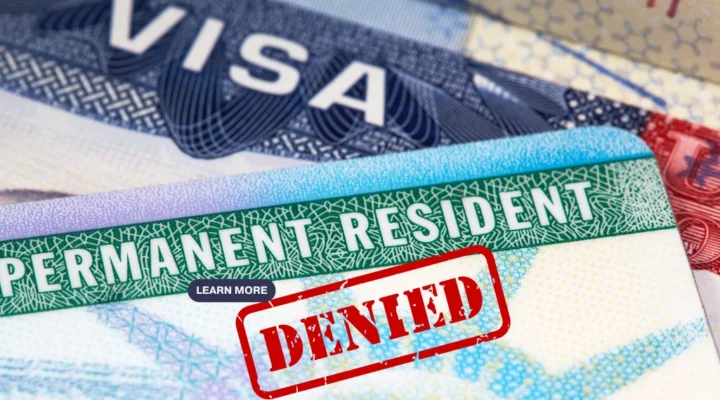Recent Tourism Crimes That Will Surprise You
Travel promises freedom, adventure, and unforgettable memories. But behind the glittering curtain of curated Instagram feeds and glossy travel brochures lurks a shadowy reality—the dark side of tourism. As global travel rebounds with full force, so too do opportunistic crimes that target unsuspecting visitors. From subtle scams to shocking criminal rings, the recent wave of incidents serves as a stark reminder that even paradise has its predators.
The Evolving Landscape of Tourism Crime
Gone are the days when pickpockets were the only concern for tourists. Today’s criminal underworld has evolved into a sophisticated, global operation. With digital trickery, organized rings, and elaborate deceit, travelers face new risks every day. Governments and tourism boards are responding with frequent tourism security updates, yet the wave of incidents keeps rising.
Recent hotspots like Southeast Asia, parts of Eastern Europe, and some Caribbean islands have reported alarming spikes in targeted crimes against visitors. These aren’t isolated incidents—they’re recurring threats shaped by economic hardship, weak law enforcement, and the booming influx of digital nomads and wanderlusters.
Real Tourist Crime Cases That Shocked the World
Let’s pull back the curtain on some chilling real tourist crime cases that made international headlines.
- Bali Baby Formula Scam: In this bizarre case, tourists were approached by women claiming to need help buying baby formula. Kind-hearted travelers would foot the bill—only to discover they were charged ten times the price at complicit convenience stores, with the profits split among scammers.
- Rome’s Golden Bracelet Ruse: A charming stranger ties a “friendship bracelet” around a tourist’s wrist before demanding money. When refused, things escalate quickly with verbal threats or even pickpocketing during the distraction.
- Mexico’s Taxi Kidnapping Rings: Unlicensed cab drivers in Mexico City have been linked to express kidnappings—short-term abductions where victims are driven to ATMs and forced to empty their bank accounts.
These chilling cases underscore how criminal ingenuity has evolved in tandem with global tourism trends.
The Rise of Eye-Opening Travel Scams
Some schemes are so clever, they feel almost cinematic. But make no mistake—they’re real, and they’re multiplying.
A growing category includes eye-opening travel scams involving online deception. Fraudulent travel agencies now create entire fake booking sites that clone reputable brands. Travelers enter their details and pay in full, only to arrive at their hotel to find no reservation—or worse, no such hotel exists.
Digital romance scams are also booming in travel-heavy locations. Tourists are lured into fake relationships, then exploited for money or involved in criminal activity unknowingly. Even social media platforms are being used to bait travelers with influencer-style “deals” on accommodations, experiences, or transport—all completely fictitious.
Another jaw-dropper? QR code scams. Posted at faux tourist spots or restaurant tables, these codes link to malware-infested sites that steal payment data instantly.
Global Responses & Tourism Security Updates
In light of these rising risks, tourism ministries and travel watchdogs are issuing frequent tourism security updates to protect global citizens. Many countries now recommend registering your trip with embassies and offer dedicated apps for receiving real-time crime alerts.
Governments are also clamping down with technology. Smart surveillance systems in cities like Dubai and Singapore use AI to detect pickpocket behaviors. Border patrols in Europe are now equipped with biometric screening to catch repeat offenders targeting airports and train stations.
Hotels are also stepping up security with ID verification, contactless check-ins, and fraud detection systems integrated into booking software. But ultimately, personal vigilance remains the first and strongest line of defense.
The Broader Impact of the Dark Side of Tourism
Beyond individual loss, the dark side of tourism affects economies, reputations, and communities. Tourism is a lifeline for many destinations. When safety is compromised, visitor numbers plummet, affecting everything from small business revenue to national GDP.
Locals suffer too. The rise of scams and criminal activity fosters mistrust between visitors and residents. Destinations known for friendliness and openness now grapple with skepticism and suspicion. It’s a painful paradox—crime thrives in tourist areas, yet tourism suffers because of it.
Staying One Step Ahead
So, how do you safeguard your wanderlust in a world where danger occasionally lurks behind postcard-perfect scenes?
- Always book through verified, reputable platforms.
- Use virtual private networks (VPNs) when accessing public Wi-Fi.
- Avoid sharing travel plans publicly on social media in real time.
- Keep copies of essential documents in cloud storage or encrypted apps.
- Rely on peer-reviewed travel forums and tourism security updates from official government channels.
When traveling to developing regions or political hotspots, be sure to read up on the latest real tourist crime cases in that area. The more you know, the less vulnerable you’ll be to becoming just another cautionary tale.
Final Boarding Call: Caution is the New Luxury
Awareness isn’t about spreading fear—it’s about building resilience. Knowing how to spot eye-opening travel scams, understanding the dark side of tourism, and keeping an eye on tourism security updates allows adventurers to move with more confidence and less risk.
Travel is still one of life’s richest experiences. But as the world grows smaller and crime more inventive, the wisest explorers will be those who pack a passport… and a plan.

